Sustainable Events Guide in Kenya
Sustainable Events Guide in Kenya – Eco-Friendly Planning with Peak Audio

Sustainable Events Guide in Kenya
Planning eco-friendly events in Kenya is no longer a trend—it’s a responsibility. From conferences in Nairobi to outdoor festivals in Naivasha, more organizers are choosing sustainability by reducing waste, conserving energy, and supporting local businesses. Whether you’re hosting a small workshop or a high-profile corporate event, every decision you make has the potential to positively impact the environment.
At Peak Audio, we champion green event solutions by offering energy-efficient audio-visual equipment, solar-powered PA systems, and minimal-waste setup practices. Our team ensures that your event runs smoothly while minimizing its carbon footprint. We also work with venues that prioritize sustainability, helping you meet your green goals without compromising on quality or experience.
Going green doesn’t mean scaling down—just smarter choices. Use digital invitations, reusable decor, and partner with vendors who share your sustainability vision. With Peak Audio as your eco-conscious AV partner, you can create memorable, impactful events that reflect your values and support Kenya’s growing environmental movement.
1. Key Principles of Sustainable Event Planning
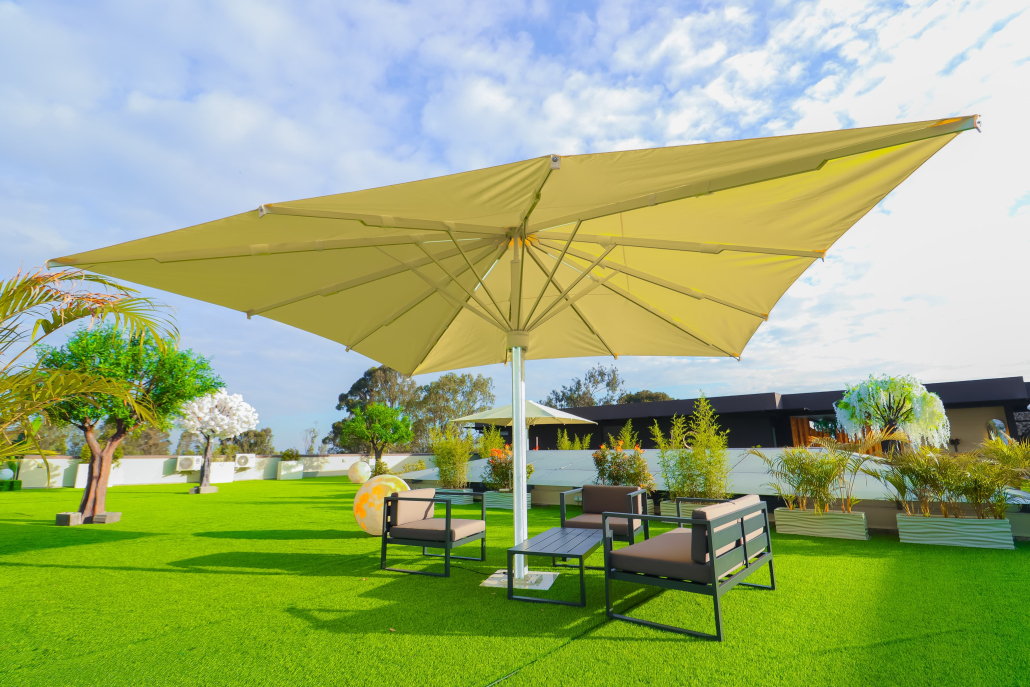
Sustainable Events Guide in Kenya
Sustainable event planning is essential for reducing the environmental footprint of gatherings while promoting social responsibility and economic benefits. Incorporating green practices helps event organizers minimize harm to the planet and support community wellbeing, ensuring long-term positive impacts for all stakeholders involved.
1.1 Reducing Environmental Impact
-
Minimizing Waste Generation
Implementing strategies such as digital invitations, reusable décor, and eco-friendly packaging helps drastically reduce the volume of waste produced during events. -
Cutting Down Emissions
Encouraging the use of public transport, carpooling, or providing shuttle services lowers carbon emissions associated with attendee travel and logistics. -
Energy-Efficient Operations
Selecting venues that use renewable energy sources or energy-efficient lighting and equipment reduces the event’s overall electricity consumption and carbon footprint. -
Sustainable Venue Selection
Choosing venues committed to green certifications and sustainable management practices ensures alignment with environmental goals and reduces ecological impact.
1.2 Supporting Local and Ethical Suppliers
-
Local Sourcing to Lower Carbon Footprint
Partnering with local caterers, decorators, and equipment providers minimizes transportation emissions and supports the regional economy. -
Fair Labor and Ethical Practices
Working with suppliers who demonstrate ethical labor standards promotes social sustainability and ensures fair treatment of workers. -
Encouraging Sustainable Product Choices
Selecting vendors who provide eco-friendly products such as biodegradable utensils, organic food, and sustainably harvested materials reduces environmental harm. -
Building Community Relationships
Engaging local suppliers fosters long-term partnerships and strengthens community ties, contributing to the event’s social impact.
1.3 Promoting Reuse and Recycling
-
Digital Materials Over Print
Replacing printed brochures, agendas, and tickets with digital versions significantly cuts down paper waste and printing resource use. -
Effective Waste Segregation
Providing clearly marked recycling bins and educating attendees on proper waste disposal encourages responsible behavior and maximizes recycling rates. -
Reusable Event Infrastructure
Using durable, reusable signage, furniture, and décor minimizes single-use items and reduces landfill contributions. -
Composting Organic Waste
Implementing composting systems for food scraps and biodegradable waste helps divert organic materials from landfills, closing the loop on waste management.
Adopting key principles of sustainable event planning—reducing environmental impact, supporting local and ethical suppliers, and promoting reuse and recycling—not only lessens ecological harm but also enriches community engagement and cost efficiency. Events planned with these guidelines demonstrate responsibility and leadership in environmental stewardship, creating positive legacies beyond the occasion itself.
2. Sustainable Venue and Vendor Selection in Kenya
Choosing venues and vendors with sustainable practices is crucial for minimizing the environmental footprint of events while supporting local economies and ensuring resource efficiency. Kenya offers a growing number of eco-conscious options that align with green event goals.
2.1 Eco-Certified Venues
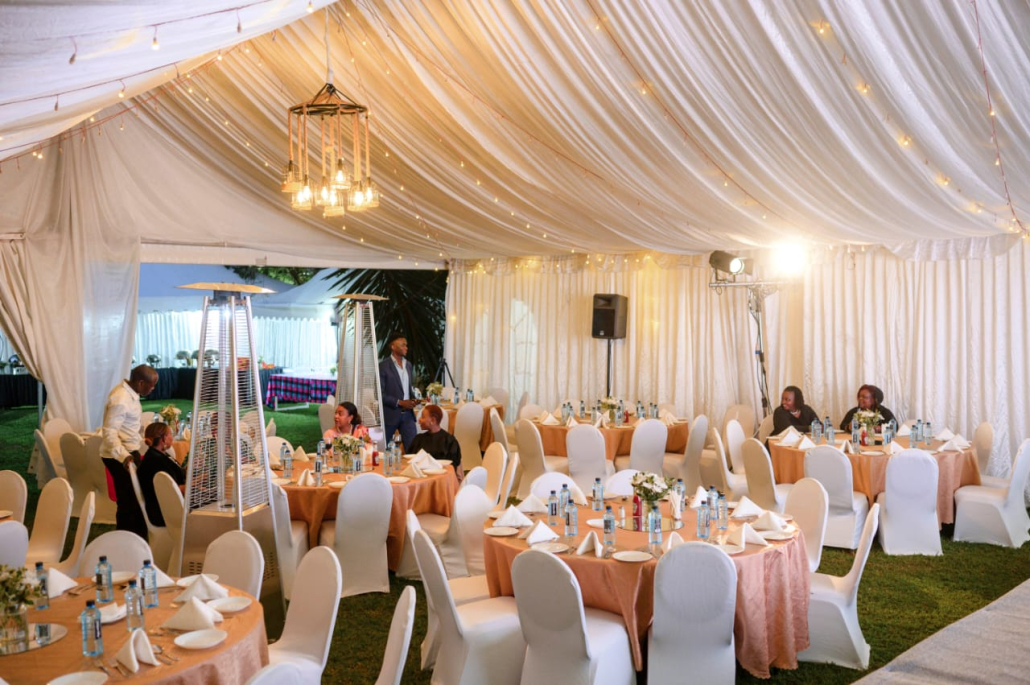
Sustainable Events Guide in Kenya
-
Green Certifications and Standards
Opt for hotels, conference centers, and outdoor event spaces certified by recognized bodies such as Green Key or EarthCheck, which validate adherence to sustainable environmental management practices. -
Energy-Efficient Infrastructure
Select venues equipped with energy-saving technologies such as LED lighting, solar panels, smart climate control, and efficient HVAC systems to reduce overall electricity consumption. -
Water Conservation Facilities
Choose venues that implement water-saving fixtures like low-flow taps, dual-flush toilets, and rainwater harvesting systems to minimize water wastage during events. -
Waste Management and Recycling Programs
Prioritize venues with established waste segregation, recycling programs, and composting initiatives that ensure proper handling of waste generated onsite.
2.2 Sustainable Catering Options

Sustainable Events Guide in Kenya
-
Organic and Locally-Sourced Ingredients
Work with caterers who prioritize organic produce grown locally in Kenya, reducing food miles and supporting small-scale farmers and suppliers. -
Seasonal Menu Planning
Design menus based on seasonal availability of ingredients to minimize reliance on imported goods and reduce environmental impacts associated with food transportation. -
Elimination of Single-Use Plastics
Implement catering practices that avoid disposable plastic items by using biodegradable or reusable alternatives such as bamboo cutlery and compostable plates. -
Minimizing Food Waste
Collaborate with caterers who practice portion control, donate leftovers to community programs, or compost organic waste to reduce the volume of food discarded post-event.
2.3 Transport and Travel Considerations

Sustainable Events Guide in Kenya
-
Promoting Carpooling and Shuttle Services
Encourage attendees to share rides or use organized shuttle buses to reduce the number of vehicles traveling to the event, cutting down emissions and traffic congestion. -
Virtual Attendance Options
Offer hybrid or fully virtual participation opportunities to decrease travel-related carbon emissions and increase accessibility for remote guests. -
Central Venue Location Selection
Choose venues situated within major urban centers or close to public transport hubs like Nairobi, Mombasa, or Kisumu to facilitate easy and eco-friendly access. -
Support for Sustainable Transport Modes
Encourage the use of bicycles, walking, or electric vehicles by providing adequate parking, charging stations, and safe pathways at event sites.
Sustainable venue and vendor selection in Kenya involves a thoughtful approach to choosing eco-certified locations, partnering with responsible caterers, and encouraging greener travel options. By focusing on these critical areas, event planners can significantly reduce environmental impacts, support local economies, and deliver memorable, responsible events that align with global sustainability goals.
3. How Peak Audio Powers Sustainable Events
Peak Audio is committed to advancing sustainability in event production by integrating eco-friendly technologies and practices into its audio-visual services. This commitment helps clients reduce their environmental impact while delivering high-quality event experiences.
3.1 Energy-Efficient AV Equipment
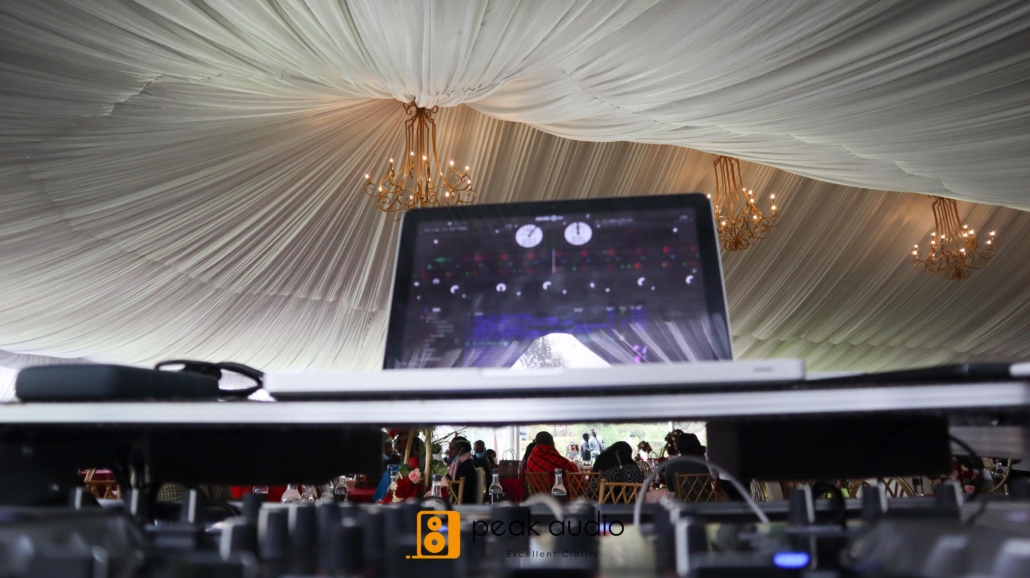
Sustainable Events Guide in Kenya
-
LED Lighting Solutions
Peak Audio uses LED stage and event lighting that consumes significantly less electricity than traditional incandescent or halogen bulbs, reducing overall energy usage during events. -
Low-Energy Projectors
The company provides modern projectors designed for high efficiency and long lifespan, which consume less power while delivering bright, clear images for presentations. -
Efficient Sound Systems
Sound systems supplied by Peak Audio incorporate energy-saving amplifiers and speakers that optimize power consumption without compromising audio clarity or volume. -
Smart Energy Management
Where possible, equipment is managed using intelligent control systems that power down devices when not in use, minimizing wasted energy throughout event durations.
3.2 Digital Signage and Displays
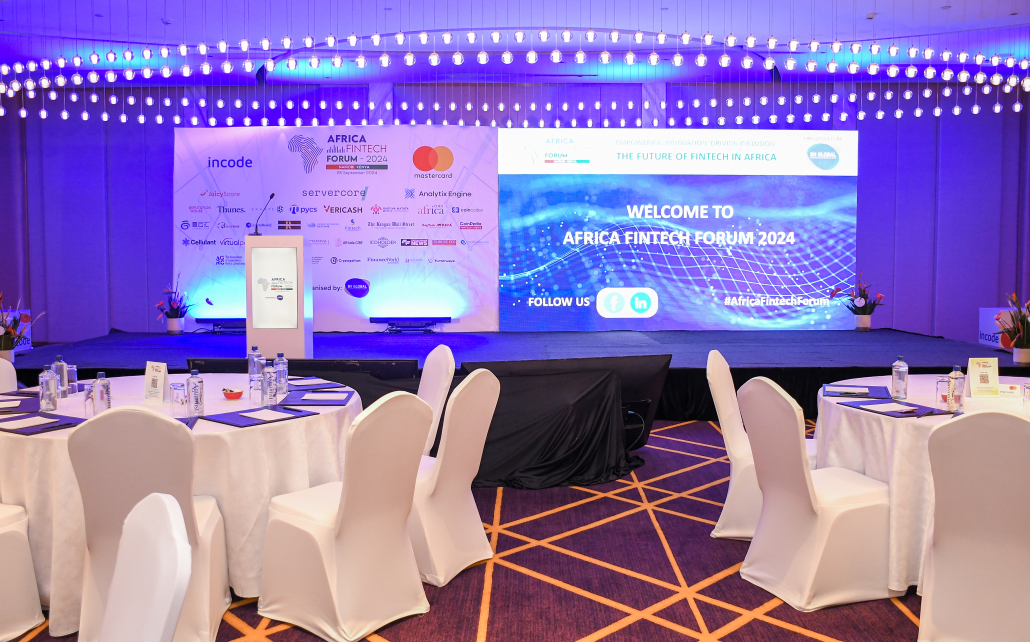
Sustainable Events Guide in Kenya
-
Reusable LED Screens
Instead of traditional paper or vinyl banners, Peak Audio offers vibrant LED screens for digital signage that can be reused for multiple events, reducing waste generation. -
Dynamic Content Updates
Digital displays allow real-time content changes, eliminating the need for printing new materials for every event adjustment or update. -
Reduced Printing Footprint
By replacing physical materials with digital signage, Peak Audio helps clients reduce the environmental cost of paper production, ink usage, and waste disposal. -
Enhanced Visual Engagement
LED displays provide bright, eye-catching visuals that increase audience engagement, making digital signage an effective and sustainable alternative to printed collateral.
3.3 Hybrid & Virtual Conference Support
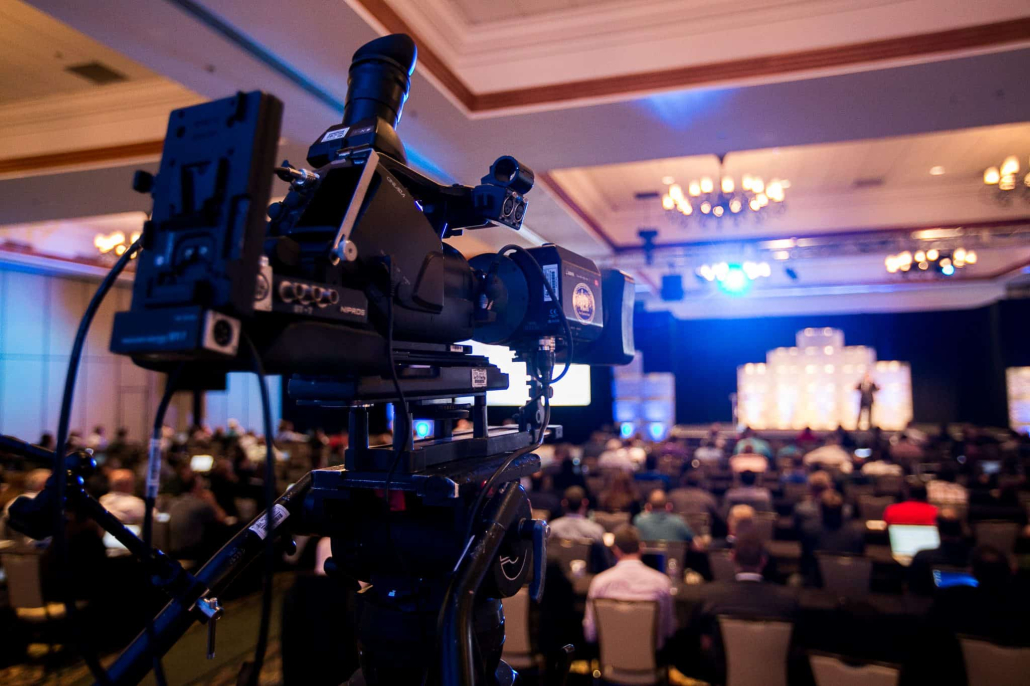
Sustainable Events Guide in Kenya
-
Remote Participation Enablement
Peak Audio facilitates hybrid and fully virtual events using professional live streaming and video conferencing equipment, reducing the need for attendee travel. -
Lower Carbon Emissions
By supporting remote access, the company helps clients significantly cut carbon footprints associated with flights, road transport, and accommodation. -
Scalable Virtual Solutions
The firm offers scalable solutions tailored to the size and scope of events, ensuring that hybrid experiences remain seamless and interactive for all participants. -
Integration with Event Platforms
Peak Audio’s systems integrate smoothly with popular conferencing and webinar platforms to deliver high-quality audio and video without excessive hardware requirements.
3.4 Minimalist Setup Practices
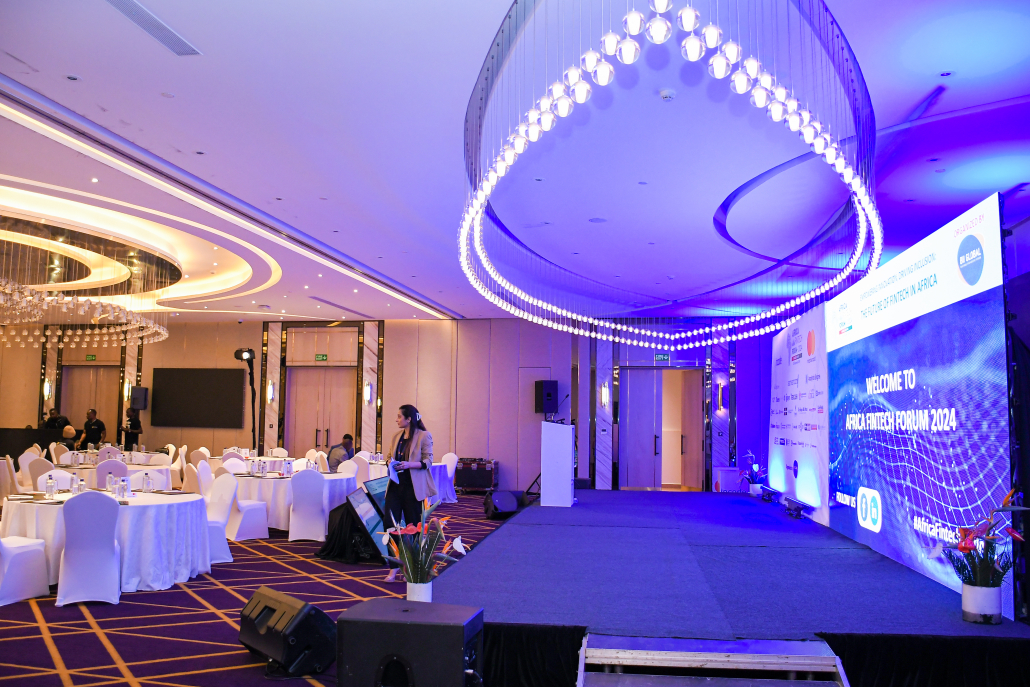
Sustainable Events Guide in Kenya
-
Compact and Modular Equipment
Peak Audio employs modular AV equipment that is lightweight and easy to transport, reducing the environmental impact of logistics and freight. -
Optimized Resource Usage
The company focuses on setups that use only necessary equipment, avoiding excess gear that consumes additional energy and space. -
Reduced Packaging Waste
By standardizing and reusing packaging materials, Peak Audio minimizes waste produced during equipment delivery and storage. -
Efficient Load Planning
Careful planning of transportation routes and load sizes decreases the number of trips required, thereby cutting fuel use and emissions related to event logistics.
Peak Audio’s sustainable event solutions demonstrate a strong commitment to environmental responsibility by integrating energy-efficient AV equipment, promoting digital signage, enabling hybrid events, and employing minimalist setup practices. These initiatives help clients host memorable events while minimizing their ecological footprint and supporting Kenya’s broader sustainability goals.
4. Sustainable Event AV Packages
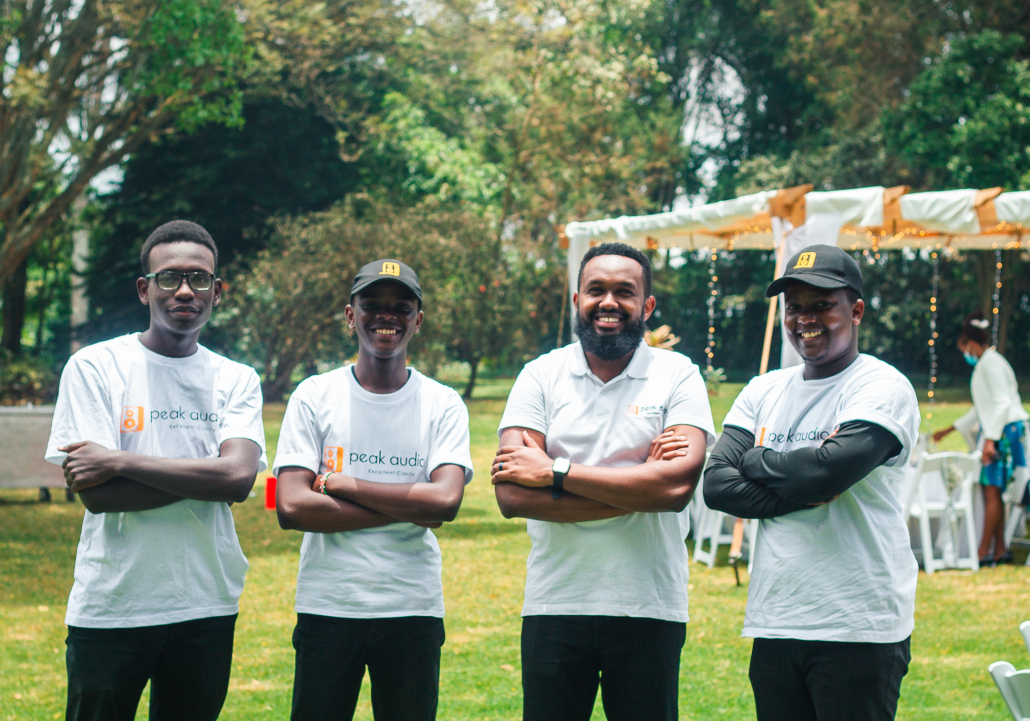
Sustainable Events Guide in Kenya
Peak Audio offers a range of tailored AV packages designed to support sustainable event planning. These packages cater to different event sizes and sustainability goals, helping organizers reduce their environmental footprint while delivering professional audio-visual experiences.
4.1 Green AV Starter Kit – For Small Eco-Conscious Events
-
Battery-Powered Speakers
This package features portable, battery-powered speakers that eliminate the need for power cables and reduce energy consumption, ideal for small venues and outdoor gatherings. -
LED Up-Lighting
Energy-efficient LED up-lights enhance event ambiance while using minimal electricity, contributing to a greener event setup. -
Simple Digital Display
Includes compact digital displays for presentations or signage, cutting down on printed materials and waste. -
Lightweight and Easy Setup
Designed for quick installation and dismantling, reducing labor and transportation emissions for smaller, eco-conscious events.
4.2 Eco-Standard Package – For Mid-Size Conferences
-
Low-Power Audio Systems
Equipped with efficient amplifiers and speakers that maintain high sound quality with reduced power use, suitable for medium-sized conference rooms. -
Virtual Integration Tools
Supports hybrid event functionality with integrated video conferencing and streaming capabilities, allowing remote participation and lower travel emissions. -
Energy-Efficient Displays
High-resolution LED screens and projectors that consume less electricity while providing clear visuals for presentations and branding. -
Sustainable Accessories
Includes use of reusable cables, eco-friendly packaging, and options for digital program distribution to minimize paper use.
4.3 Hybrid Sustainability Package – For National & NGO Events
-
Comprehensive Hybrid Support
Full setup for in-person and virtual attendance, including multiple camera angles, professional live streaming, and audience interaction tools to maximize reach. -
Digital Invitations and Materials
Encourages paperless event management through electronic invitations, digital programs, and online feedback forms to reduce printed waste. -
Zero-Paper Policy
Strict adherence to a paper-free event approach wherever possible, including digital signage, virtual handouts, and electronic billing. -
Sustainability Reporting
Provides post-event environmental impact reports to help organizers measure and communicate their green achievements.
4.4 Customized Green AV Solutions
-
Tailored Sustainability Goals
Packages are designed specifically to meet the unique environmental objectives and event requirements of each client, ensuring maximum impact. -
Flexible Equipment Options
Ability to mix and match energy-efficient AV components, including solar-powered gear and recycled-material accessories. -
Sustainability Consultation
Expert advice on best practices for reducing waste, energy, and emissions throughout the event lifecycle. -
Ongoing Support and Reporting
Dedicated support for monitoring event sustainability and providing detailed reports for continuous improvement and transparency.
Peak Audio’s sustainable AV packages cater to a wide range of events, from small eco-friendly gatherings to large-scale national conferences, helping organizers achieve their environmental goals without compromising on quality or professionalism. These thoughtfully crafted solutions promote energy efficiency, waste reduction, and digital innovation, positioning Peak Audio as a leader in sustainable event technology in Kenya.
5. Sustainable Event Checklist

Sustainable Events Guide in Kenya
To ensure every event is environmentally responsible and aligned with sustainability goals, Peak Audio recommends a comprehensive checklist covering all phases of the event—from planning to post-event evaluation.
5.1 Pre-Event Planning
-
Carbon Footprint Estimation
Calculate the anticipated carbon emissions from travel, energy use, catering, and waste to identify key areas for reduction. -
Setting Sustainability Goals and KPIs
Define clear, measurable targets such as waste reduction percentages, energy savings, or percentage of local suppliers used to track performance. -
Sustainable Vendor Selection
Choose venues, caterers, and AV providers committed to eco-friendly practices and certifications to ensure alignment with event values. -
Digital Event Materials Preparation
Prepare digital invites, programs, and signage to minimize paper usage and encourage attendee engagement with sustainable communication.
5.2 Event Day Practices
-
Waste Stations with Clear Segregation
Place visible recycling and compost bins to encourage proper waste sorting and reduce landfill contributions. -
Digital Check-In Systems
Implement app-based or QR-code check-ins to eliminate paper tickets and reduce queues, improving attendee experience sustainably. -
Use of Reusable Decor and Materials
Opt for decorations, signage, and tableware that can be reused across events to minimize single-use plastics and waste. -
Energy-Efficient Equipment Usage
Ensure AV equipment and lighting are operated at optimal efficiency to conserve energy throughout the event duration.
5.3 Post-Event Evaluation
-
Measuring Environmental Impact
Analyze data on waste generated, energy consumed, and attendee travel to quantify the event’s ecological footprint. -
Collecting Attendee and Stakeholder Feedback
Use surveys and interviews to assess perceptions of the event’s sustainability efforts and gather improvement suggestions. -
Sustainability Reporting and Transparency
Produce detailed reports outlining successes, challenges, and lessons learned to inform future events and demonstrate accountability. -
Implementing Continuous Improvement Plans
Based on evaluation insights, develop actionable strategies for enhanced sustainability in upcoming events, fostering a culture of responsibility.
A thorough sustainable event checklist ensures that every phase of an event prioritizes environmental responsibility and continuous improvement. By focusing on planning, execution, and post-event evaluation, organizers can significantly reduce their ecological footprint and promote green event practices with confidence and transparency.
6. Benefits of Hosting Eco-Friendly Events
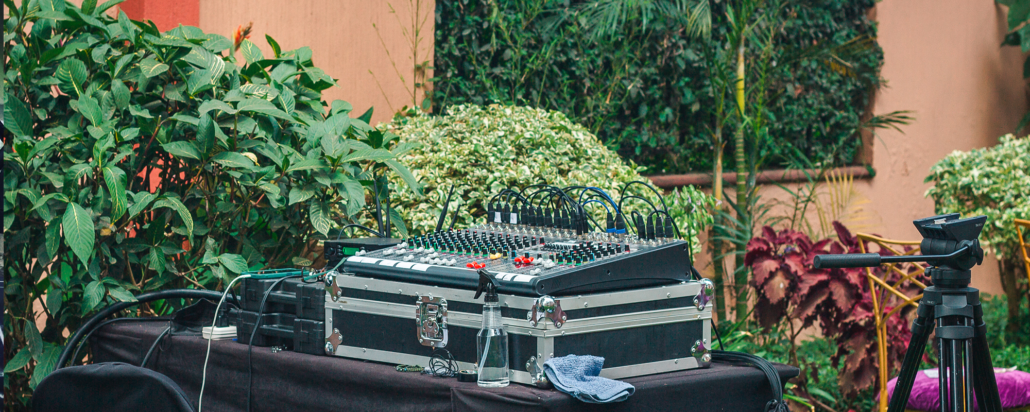
Sustainable Events Guide in Kenya
Sustainable event practices are more than just a trend—they’re a strategic investment. From reputation building to cost efficiency, eco-friendly events create positive, lasting impact on both the environment and stakeholders involved.
6.1 Enhanced Brand Image and Reputation
-
Positioning as a Responsible Brand
Companies and organizations that adopt sustainable practices are seen as forward-thinking and socially responsible, earning respect from clients, partners, and the public. -
Positive Media and PR Opportunities
Eco-conscious events often attract favorable press coverage, offering a chance to share sustainability stories and commitments on various platforms. -
Stronger Stakeholder Relationships
Sponsors, NGOs, religious organizations and government bodies are increasingly aligning with green initiatives. Hosting eco-friendly events can open doors to long-term partnerships. -
Greater Market Differentiation
By embracing sustainability, brands set themselves apart in competitive markets, showcasing their commitment to innovation and ethical standards.
6.2 Cost Savings Over Time
-
Reduced Energy and Water Bills
Using energy-efficient AV equipment, LED lighting, and water-saving venue facilities can lead to noticeable reductions in utility costs. -
Lower Printing and Material Costs
Switching to digital invites, programs, and signage significantly cuts expenses tied to paper, ink, and printing services. -
Reusable Event Assets
Investing in reusable staging, décor, and signage avoids repetitive costs for every event, improving long-term ROI. -
Optimized Logistics and Transport
Compact setups and hybrid participation reduce fuel and logistics costs, especially for nationwide or multi-day events.
6.3 Increased Attendee Satisfaction and Engagement
-
Positive Perception Among Guests
Attendees increasingly prefer to support events that reflect their environmental values, enhancing their emotional connection with the host brand. -
Comfort and Efficiency at Eco-Conscious Events
LED lighting, clean digital signage, and waste-conscious practices often create smoother, more organized event experiences. -
Interactive Sustainability Features
Incorporating green booths, recycling stations, and carbon footprint dashboards engages participants in meaningful ways. -
Healthier, Locally Sourced Catering
Eco-events often provide organic or fresh, locally sourced meals—an appreciated perk that also reflects wellness values.
6.4 Support for Kenya’s Green Economy and SDGs
-
Advancing Environmental Policy Goals
Eco-friendly events contribute to Kenya’s sustainability targets, including commitments under Vision 2030 and the UN’s Sustainable Development Goals (SDGs). -
Empowering Local Green Businesses
By sourcing from ethical, local vendors, event organizers help grow Kenya’s eco-enterprise sector and promote job creation. -
Educational Opportunities for Attendees
Green events often provide platforms for raising awareness about environmental conservation and responsible consumption. -
Creating Scalable Models for the Industry
Pioneering sustainable event formats encourages other players in Kenya’s events sector to adopt similar practices, multiplying impact.
Hosting eco-friendly events isn’t just good for the environment—it’s a smart, future-ready strategy for businesses, institutions, and organizers. From saving costs and boosting attendee satisfaction to supporting Kenya’s green economy, the benefits of sustainability are both immediate and far-reaching. As the demand for responsible practices grows, choosing sustainability is choosing leadership.
7. Why Choose Peak Audio for Sustainable Events
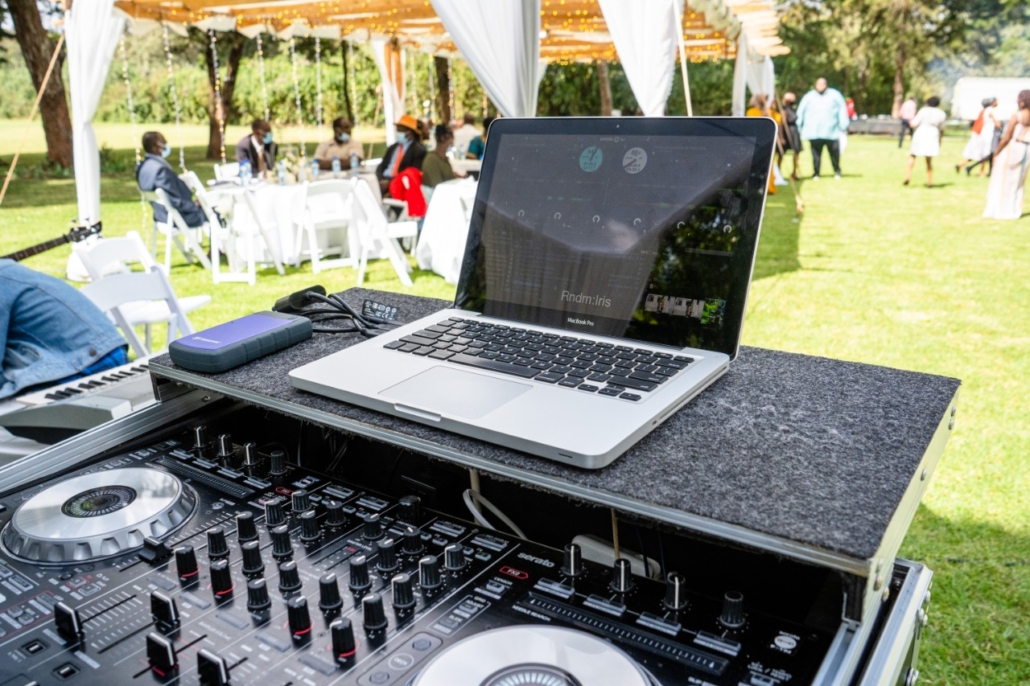
Sustainable Events Guide in Kenya
As sustainability becomes central to modern event planning, Peak Audio stands out as a trusted partner for low-impact, high-impact events. With a commitment to environmental responsibility and deep expertise in green technologies, we help clients deliver seamless, eco-conscious experiences without compromising quality.
7.1 Experience in Low-Impact Event Production
-
Proven Track Record in Green Events
Peak Audio has successfully supported numerous sustainability-focused conferences, NGO forums, corporate retreats, and academic events across Kenya that required minimal waste, low energy use, and hybrid attendance options. -
Sustainability Embedded in Every Stage
From pre-event planning to post-event reporting, our workflows are designed with environmental responsibility in mind. We help clients integrate eco-practices right from the start. -
Trained Green Events Team
Our staff is trained in sustainable event logistics, including proper power management, reusable configurations, and carbon-aware planning methods. -
Partnerships with Eco-Conscious Venues
We work closely with hotels, centers, and outdoor locations that uphold green building certifications and align with your sustainability vision.
7.2 Innovative AV Technology that Saves Energy
-
Energy-Efficient Audio and Visual Gear
All our setups use energy-saving sound systems, LED stage lighting, and modern video walls that reduce electricity consumption without sacrificing output. -
Battery and Solar Backup Options
For off-grid events or those seeking reduced dependency on diesel generators, we offer AV systems powered by battery packs and solar solutions. -
Smart System Integration
We configure our systems to power down during non-peak times, ensuring optimal energy usage throughout the event duration. -
Long-Lasting Digital Infrastructure
Our reusable digital signage and modular AV equipment reduce the need for one-time-use items, cutting down material waste significantly.
7.3 Flexibility for Hybrid and In-Person Green Events
-
Scalable Hybrid Capabilities
Whether you’re hosting 50 guests in-person and 1,000 online, or vice versa, our hybrid setups ensure minimal emissions by limiting unnecessary travel and material logistics. -
Support for Remote Presenters and Audiences
We offer video conferencing integrations, live translations, and remote streaming so participants can engage fully without having to be on-site. -
Adaptable Setup Sizes and Durations
Our AV solutions are highly customizable—whether you’re going paperless for a small meeting or running a multi-day green expo, we tailor the systems accordingly. -
Event Types Across the Board
From climate conferences to low-carbon weddings, our team adapts sustainable AV practices to fit your event’s style, theme, and footprint targets.
7.4 Commitment to Reducing the Event Industry’s Carbon Footprint in Kenya
-
Proactive Carbon Reduction Strategies
Peak Audio actively incorporates footprint-reduction techniques in all our operations—from logistics to hardware selection, transport, and packaging. -
Eco-First Policy in Vendor Selection
We collaborate with like-minded suppliers who share our mission to decarbonize Kenya’s event industry and reduce landfill waste. -
Client Education and Reporting
We help our clients understand their event’s environmental impact and offer post-event summaries highlighting carbon savings, waste diversion, and energy performance. -
Ongoing Innovation Toward Net-Zero Events
As technology evolves, we remain committed to adopting next-gen AV systems that align with net-zero ambitions and support global climate goals.
Choosing Peak Audio for your sustainable event means partnering with a team that shares your environmental values and transforms them into practical, results-driven actions. Our energy-efficient technology, hybrid flexibility, and industry leadership in low-impact production make us the ideal AV and event partner for clients committed to going green—while still delivering memorable, engaging experiences.
8. FAQs – Hosting Sustainable Events in Kenya
Planning eco-conscious events in Kenya can raise a lot of questions—especially for first-time organizers. At Peak Audio, we understand the nuances of sustainable planning and are here to provide clarity. Here are answers to some of the most frequently asked questions about green event hosting in the region:
8.1 What makes an event sustainable?
-
Minimizing Environmental Impact
A sustainable event reduces waste, conserves energy and water, and limits carbon emissions. This includes responsible transport, energy-efficient equipment, and careful resource usage. -
Using Ethical and Local Suppliers
Sourcing from nearby vendors helps reduce transportation emissions while supporting Kenya’s local economy and encouraging ethical labor practices. -
Waste Reduction and Recycling
From reusable décor to proper recycling stations, sustainable events emphasize material reuse, digital alternatives, and careful waste management. -
Inclusive and Responsible Planning
Sustainability also includes social and economic factors like fair pay for workers, equal access for participants, and long-term value creation for communities.
8.2 How can I reduce waste during a large conference?
-
Go Digital Where Possible
Use digital invitations, apps, QR check-ins, and virtual agendas instead of printed programs and brochures. -
Choose Reusable Materials
Opt for reusable signage, modular stage designs, cloth branding, and sustainable gift items instead of single-use materials. -
Set Up Clearly Marked Waste Stations
Position color-coded bins for recycling, composting, and landfill waste at strategic points throughout the venue to encourage proper disposal. -
Work with Vendors Who Share Your Vision
Caterers, AV providers, and decorators who understand sustainability can help reduce overproduction, packaging, and energy use.
8.3 Does sustainability increase event costs?
-
Not Necessarily – and Often the Opposite
While some eco-friendly materials or services may have upfront costs, many sustainable practices (like using less paper, energy, or fuel) save money in the long term. -
More Efficient Use of Resources
Digital communication, minimal AV setups, and hybrid formats can cut costs associated with printing, décor, travel, and venue size. -
Long-Term ROI for Organizations
Eco-friendly events boost brand perception, increase attendee satisfaction, and attract sustainability-conscious sponsors and partners. -
Grants and Support Opportunities
Many NGOs, government bodies, and green initiatives offer financial support or recognition for events that align with environmental goals.
8.4 Can Peak Audio help with sustainability reporting?
-
Yes – We Offer Post-Event Sustainability Insights
We provide customized reports detailing energy usage, estimated carbon savings, and waste reduction practices used during your event. -
Support for ESG and CSR Documentation
If your organization tracks ESG (Environmental, Social, and Governance) or CSR (Corporate Social Responsibility) goals, we can provide metrics to support your submissions. -
Integrated Data Collection Tools
Our AV systems can track power consumption and digital participation, helping clients capture relevant statistics for reporting. -
Guidance on Carbon Offsetting
We also offer suggestions on carbon offset strategies if you wish to neutralize your event’s residual environmental impact.
8.5 Are hybrid events better for the environment?
-
Yes – Especially in Reducing Travel Emissions
Hybrid formats allow attendees and speakers to participate remotely, significantly cutting down the carbon footprint caused by air and car travel. -
Efficient Resource Use
Smaller physical attendance means less demand for printed materials, catering, venue space, and on-site energy consumption. -
Wider Reach with Lower Impact
You can expand your audience globally without the environmental and logistical burdens of hosting a large physical crowd. -
Sustainable Tech Integration
With support from Peak Audio’s hybrid-ready AV systems, your event remains interactive, immersive, and engaging—while still being eco-friendly.
Hosting sustainable events in Kenya is not only possible—it’s practical, cost-effective, and increasingly expected. With the right partners like Peak Audio, you can navigate everything from waste reduction to hybrid tech and reporting with ease. Our mission is to empower clients to make greener choices without sacrificing professionalism or impact. Have more questions? We’re always ready to help you plan your next eco-conscious event.
Go Green with Your Next Event with Peak Audio
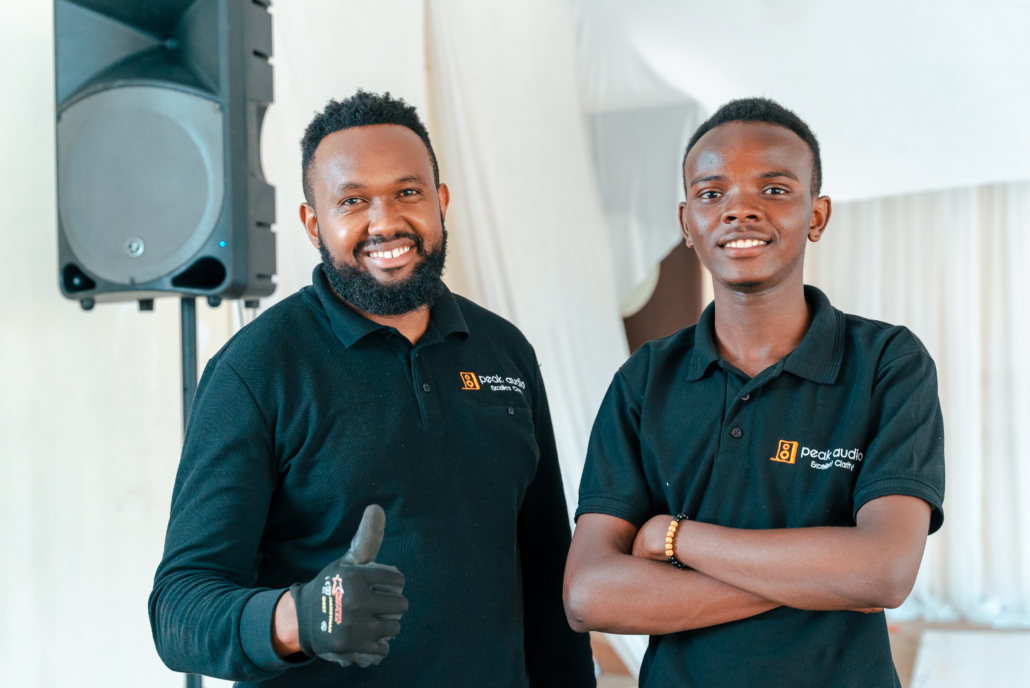
Sustainable Events Guide in Kenya
Leave a Reply
Want to join the discussion?Feel free to contribute!